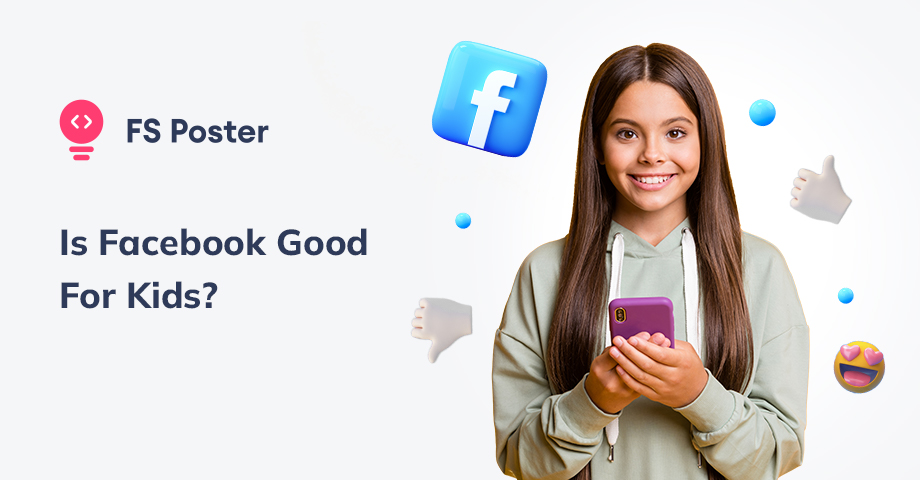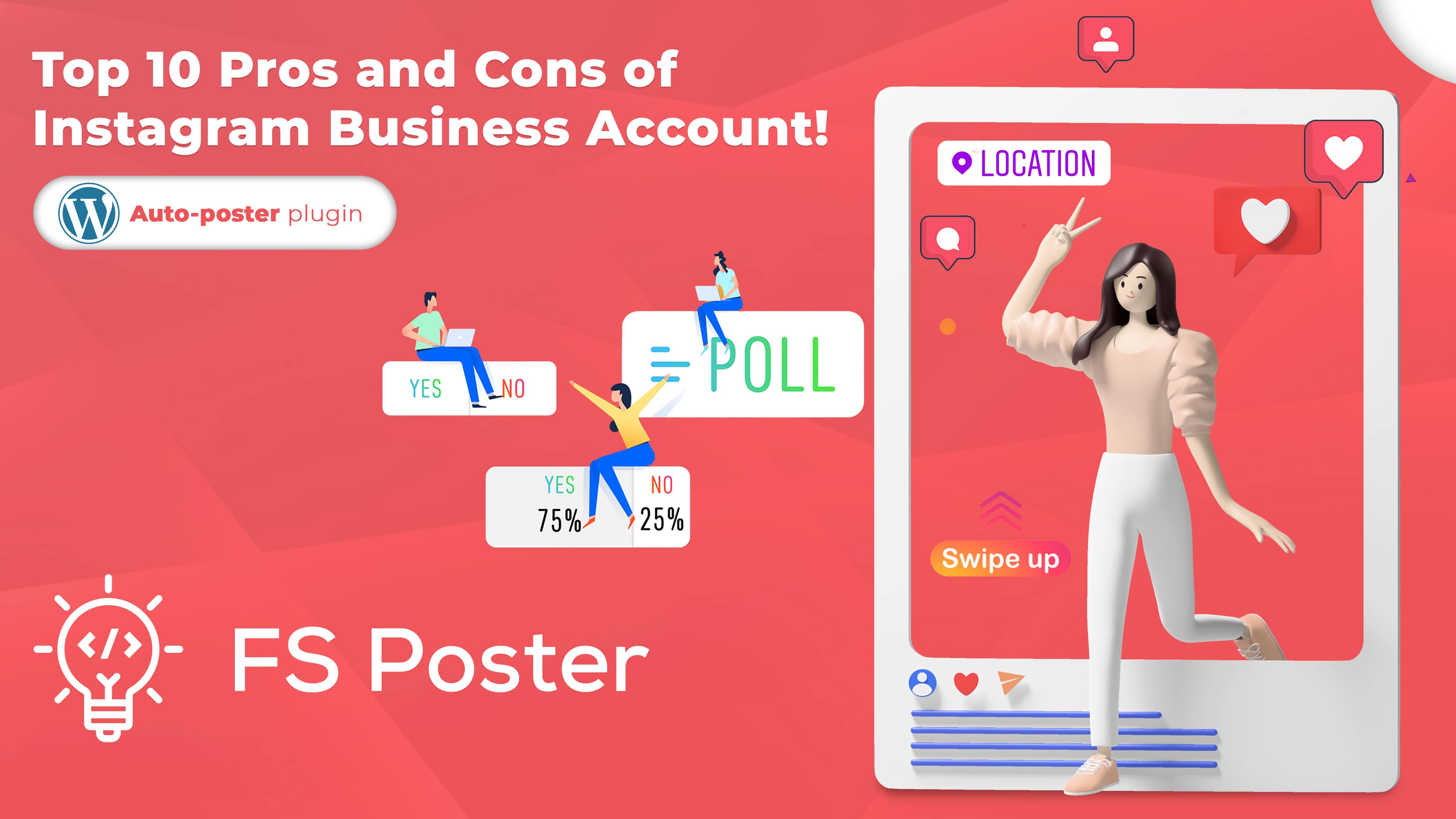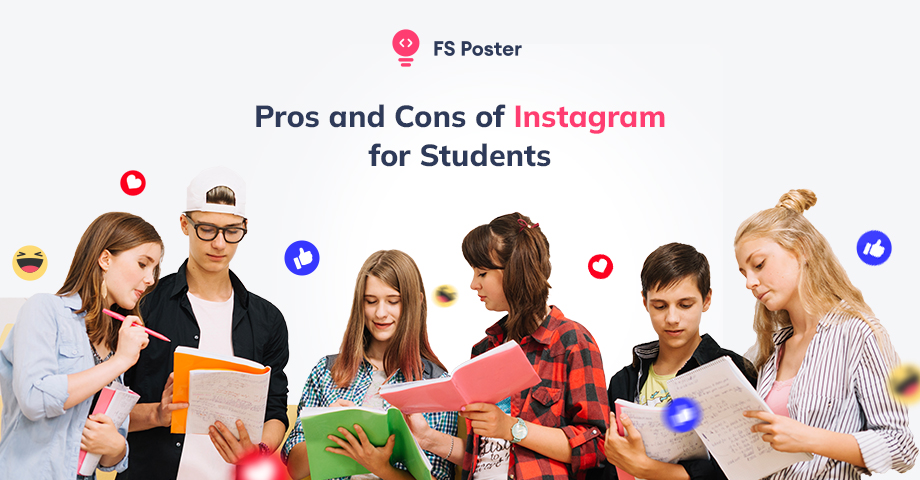
Saritel Abbaszade
Author
If you are following our blogs regularly, you should know that we are also talking about the downsides of social networks for kids. Previously we talked about the pros and cons of Instagram for kids. So today, we will talk about the pros and cons of Facebook for kids.
Facebook is one of the most popular social networking platforms in the world, and it's no secret that it can be a great tool for connecting with friends and family. But is Facebook good for kids? That's a question that parents everywhere are asking themselves. Today, we will explore the pros and cons of Facebook for kids and help you decide if it's right for your family.
Is Facebook popular among teens?
Absolutely. According to a study by the Pew Research Center, as of 2022, 32% of teens ages 13-17 have Facebook accounts. That still makes it one of the most popular social networks among young people today.

How do kids use Facebook efficiently?
Teaching your child to use Facebook safely and responsibly is essential. This involves setting up proper privacy settings, avoiding inappropriate content, not accepting friend requests from strangers, and understanding the potential risks associated with the platform.
It's also a good idea to monitor their account activity and maintain open communication to address any concerns you might have.
What are the risks of using Facebook for students?
The biggest risk for teens using Facebook is the possibility of cyberbullying, which can range from hurtful comments to the sharing of inappropriate photos without consent. Additionally, it’s important to recognize that Facebook is a data-collection platform, which may be used to target ads and gather personal information.
Pros and cons of Facebook for kids
As a parent, you may be wondering if Facebook is suitable for your teen. There are both pros and cons to using this popular social media platform. Let's take a look at some of the key points:
Pros:
-Facebook allows kids to stay connected with friends and family. Teens can easily stay in touch with their friends, even if they don't live nearby. It also provides an opportunity for them to stay up-to-date on current events and news stories around the world.
-It is an excellent way for teens to express themselves, share their interests and hobbies, and cultivate relationships with others.
-Facebook can also be used to organize activities such as group projects or events, which can help teach teens essential life skills.
Cons:
-It is easy for predators or bullies to target children on Facebook, so it's important to monitor your child's online activity.
-There is a risk of addiction and compulsive behavior, as teens may become overly reliant on getting instant gratification from social media "likes" or comments.
-Facebook can be a source of peer pressure, as teens may feel pressured to post pictures or other content in order to fit in or appear popular.
 What should parents do in this situation?
What should parents do in this situation?
It's essential for parents to be actively involved when it comes to their children's online activities. Parents should monitor their children's online behavior and talk to them about the potential risks of using Facebook. They should also set rules and limits around how much time is spent on the platform, as well as which types of content are allowed and what type of language is appropriate to use.
Ultimately, it’s up to parents to determine whether Facebook is appropriate for their family. If pros and cons are clear and thought through, kids can make an informed decision that prioritizes their children's safety while allowing them to benefit from what the platform offers.
By taking the necessary precautions and educating themselves on the risks, parents can ensure that their children get the most out of their Facebook experience without putting themselves at risk. With a little bit of knowledge and guidance, parents can help their children safely navigate the world of social media.
Should I let my child use Facebook?
The decision to allow your child to use Facebook depends on their age and maturity level, as well as any rules you decide to set. Ultimately, it's up to you as a parent to monitor your child's online activity and ensure they are using the platform responsibly.
It's important to keep in mind that Facebook can be a great tool for staying connected with friends and family, discovering new interests, learning about current events, and finding educational resources. However, it's also important to be aware of the risks that come with allowing your child to use Facebook and make sure they understand these risks.
Ultimately, you know your child best and should make the decision that is right for them. With an understanding of both the pros and cons of Facebook for kids, you can ensure that your child has a safe and enjoyable experience on the platform.

Alternatives to Facebook for kids
Facebook is an accessible platform for kids, but it's not the only option. With a few simple steps, parents can open up kids to a world of safe and educational social media platforms.
One alternative worth checking out is KidZui, a web browser created specifically for children. It offers over three million games, videos, and websites kids can explore safely. It also has parental control features like time limits, activity logs, and age ratings.
Another option is Everloop, an online community for children aged 6-12 years old. It provides a safe space for kids to communicate with their friends, access educational content, join interest groups and play games that have been approved by parents.
Finally, there's Qustodio, a parental control app that helps protect kids from potentially harmful content and activities online. It also offers time limit controls, web filters, and activity reports so parents can keep an eye on their child's online activity.
These alternatives to Facebook for kids offer a safe and educational platform for children to explore. With the right tools, parents can ensure their children are using social media safely and responsibly.
Conclusion
With proper guidance, teens can benefit from staying connected with family and friends, learning important life skills, and expressing themselves creatively. However, it's essential that parents remain vigilant and monitor their teen's activity on the site.
With a balance of education and support, teens can have a healthy relationship with Facebook while avoiding potential risks.
While Facebook is an accessible social media platform for kids, it's crucial to consider other options that offer a safer environment. By exploring alternatives like KidZui, Everloop, and Qustodio, parents can help ensure their children are using social media in a safe and responsible way.










